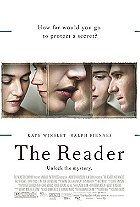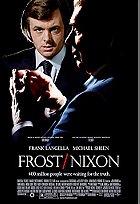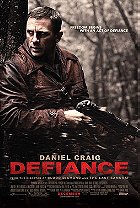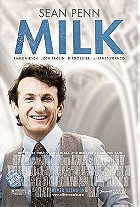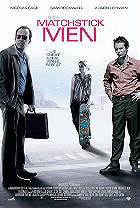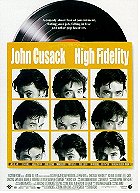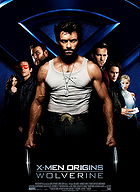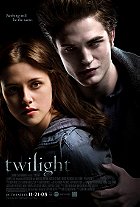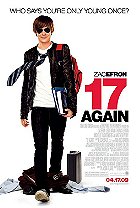An ambitious historical drama helmed by the legendary Clint Eastwood, Changeling is without a doubt one of the best pictures of 2008; a thoroughly engrossing, powerful film able to entertain as much as it provokes. Eastwood's latest masterwork is based on a true story, and it chronicles the appalling events surrounding the Wineville Chicken Coop Murders that occurred between 1928 and 1930. It must be stressed that this feature isn't just a simplistic story of a mother's heroic quest for truth... Beneath its exterior, it's an excellent exposé of crime and corruption during the early 20th Century. Changeling is the first of Clint Eastwood's two 2008 productions (the brilliant Gran Torino being the other), and it is a mature, mesmerising saga made far more compelling by the director's masterful handling of the material. Eastwood has employed the same sparse, unadorned yet exceedingly watchable filmmaking style throughout his several decades as a director, and this style is prominent here. His films rarely drag as well - they're lean and efficient; rarely wasting energy or becoming bogged down in sentimentality. Considering the subject matter, Changeling could've been created as a maudlin, melodramatic mess with exaggerated performances and telegraphed emotion. Under Eastwood's direction, however, it is none of those things. Changeling is unforgettable... It's unforgettable for its extraordinary story, for the cinematography of ethereal beauty, for the haunting performances and for Eastwood's stylistic directorial style. But most of all, Changeling is unforgettable for its sheer impact. This is a devastating and touching story which has been beautifully told by a filmmaker who remains at the top of his game.
The story commences in 1928 Los Angeles. Hard-working single mother Christine Collins (Jolie) returns home from an impromptu shift at work to discover that her 9-year-old son Walter (Griffith) has mysteriously vanished. Five months after Walter's unexplained disappearance, the LAPD - anxious to get some good publicity to help their tarnished image - insists they've found Christine's son. Delight soon turns into horror, however, when Christine lays eyes on the young boy the police have found and instantly realises it's not her child. But the LAPD, worried about further bad press, arrogantly refuse to admit their mistake. As she questions the tactics of the police on an escalating scale of hysteria, the LAPD attempt to silence Christine through iniquitous methods and begin using the press to discredit her claims. But when a campaigning clergyman named Reverend Gustav Briegleb (Malkovich) comes to Christine's aid, the whole rotten system of lying officialdom is tackled and they begin to expose the LAPD's epic web of deception. As the mystery of her missing son deepens, Christine is forced to face an awful possibility about what might have actually happened to Walter...
During 2008, Eastwood turned 78 and still shows no sign of stopping. Most people in any trade retire at 65, but Clint was merely warming up; going on to produce some of the finest work of his directorial career (Oscar-winning films like Million Dollar Baby, Mystic River and Letters From Iwo Jima). The esteemed actor-director has effortlessly segued into a no-nonsense, old-fashioned filmmaker in the mould of John Ford, Sergio Leone, and (his mentor) Don Siegel.
For Changeling, Eastwood allows the events to unfold slowly and quietly without resorting to the over-the-top performances or a roaring soundtrack a lesser director would have employed to highlight the drama - Eastwood recognises that this tale requires no exaggeration. Put simply, Eastwood is the best classical filmmaker working in contemporary Hollywood: his pictures are never flashy or gimmicky, as he recognises these as distractions from his primary job, which is to pay service and respect to a story. However, the man is not a simplistic filmmaker either. Here, Eastwood has crafted a motion picture that moves with ease and grace from potent drama to dark thriller to a tale of corruption echoing such films L.A. Confidential and Chinatown. The ability to work on various levels and shift gears with such skill comes from years of practise...Changeling represents another career high point of one of this generation's finest directors.
Historical relevance notwithstanding, Changeling emerges as a contemporary morality tale as well. After all, Walter is abducted when Christine agrees to work on her day off (a day that she promised she would spend with Walter). By agreeing to work, Christine not only chooses her job over spending time with her son, but she also breaks a promise. The consequence of this decision is that she loses her young boy forever. The film is possibly making a statement regarding single mothers, as well as reasserting that nothing is more important than family and moments spent away from children are moments lost forever.
No original book or magazine article exists detailing the Christine Collins case. Screenwriter (and former journalist) J. Michael Straczynski had to conduct meticulous research, developing the story using newspaper files and old records (from city hall, the courthouse, and the city morgue). The extraordinary story of Changeling starts as a flapper Erin Brockovich before turning into Silence of the Lambs by way of L.A. Confidential. Truth is stranger than fiction, as they say. The fact that Eastwood's flick manages to morph from one genre to another is a measure of how truly unusual the story is. It can certainly keep an audience off balance...there are a lot of surprises. Admittedly, Changeling boasts a story far better than the screenplay, as Straczynski's inexperience as a feature film writer is occasionally evident. The one fault of the script is simple: the dialogue sounds a tad too contemporary from time to time. The period detail mixed with this modern-ish dialogue can be very jarring. Dialogue aside, though, Changeling is pervaded with an immense emotional weight that consistently feels earned and sincere as opposed to cloyingly manipulative.
The most striking element of Changeling is the look of the film. With top-shelf production values and excellent visual effects, Eastwood's feature is imbued with an evocative mood of Depression-era L.A. without missing a beat. The digital recreations of 1920's Los Angeles are marvellous, and there are moments when it looks as if Eastwood managed to get his cast and crew into a time machine. Every cent of the $55 million budget (estimated) is used sparingly and put to great use. Tom Stern (Eastwood's expert cinematographer since 2002's Blood Work) paints a muted palette of dehydrated colours reminiscent of the 1920s, punctuated with subtle splashes of colour (like Jolie's red lips) as beacons of hope.
Not only does the aging Eastwood direct his pictures, but he also produces and carries out several additional duties (hence the astounding low-budget nature of his films). Changeling has been beautifully scored by the director himself with lilting pianos and blustery strings. This sweetly melancholic music subtly comforts our souls.
If there's one thing to savour about Changeling, it's the graceful way it transports the audience, taking them back in time to this famous era with traditional Eastwood ease. The 140-minute runtime (approximately) may seem daunting, but it never really seems that long. All pieces of the puzzle merge together, forming a remarkable motion picture which rarely feels its tremendous length.
Clint Eastwood has the ability to coax the best from his actors. Changeling is propelled by an array of wonderful performances, headed by Angelina Jolie whose shattering portrayal of Christine Collins was deservedly nominated for an Academy Award. Choosing to underplay her character's rage and sadness, the actress escapes into her role, painting Christine as a determined woman whose sombre and steadfast nature in the wake of her son's disappearance occasionally gives way to an incendiary temper... Jolie brings every ounce of motherly love and anguish to this part. Appearing in most scenes and carrying the emotional weight of the entire picture, Jolie gives one of the most nuanced performances of her entire career.
There is scarcely a bad performance in the entire film. Jeffrey Donovan is arrogantly loathsome and slimy yet entirely credible as Captain Jones, who seems bereft of humanity as he tries to defend the inexcusable behaviour of the LAPD in unacceptable ways. Playing his superior with gusto, Colm Feore's Chief Davis is equally adamant to push the dirt under the rug without any regard for justice or for Christine. Also first-rate and suitably hateful are the actors portraying the unscrupulous doctors supportive of the corrupt cops - Denis O'Hare as the psychiatric hospital's nasty head doctor, as well as Peter Gerety and John Harrington Bland. Michael Kelly is an especially memorable addition to the cast playing the detective who investigates the dreadful Wineville Chicken Coop Murders. As the psychotic Gordon Stewart Northcott who executed these murders, Jason Butler Harner is exceptional. The moderately unknown actor paints one of the most skin-crawling portraits of pure evil in recent cinematic memory.
John Malkovich is a particular standout as the crusading clergyman who uses Christine's plight to further his own agenda. He's understated and terrific, bringing considerable authority to his character of Reverend Briegleb who's armed with a radio station microphone and rants against the corrupt cops of Los Angeles.
Changeling is one of 2008's best movies. What begins as a simple mystery-thriller soon takes a number of devastating twists and turns, bordering on noir before dipping into dark, bloody horror, and culminating in a courtroom drama for the well-paced and tense climax. Changeling travels to dark places, with scenes and circumstances that will haunt you long after the credits expire. It's not exactly an easy movie to watch, but it's very classy and it adroitly avoids exploitation for the sake of drama. The muted colours, the simple but effective period design and the plot-driven editing grab our attention and emotions with a firm grip as Eastwood tells this elegant story. Changeling is visually sumptuous as well; both its cinematography and art direction were justly nominated for Academy Awards. As long as Clint Eastwood continues to make new movies, this reviewer will continue to pay to watch them. This is a gorgeous, underrated masterpiece and a perfect example of fine art...how the Academy overlooked this tour de force for Best Picture is simply beyond me.
9.5/10
 Login
Login
 Home
Home 183 Lists
183 Lists 1670 Reviews
1670 Reviews Collections
Collections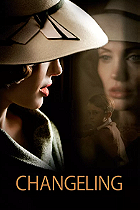
 0 comments,
0 comments, 